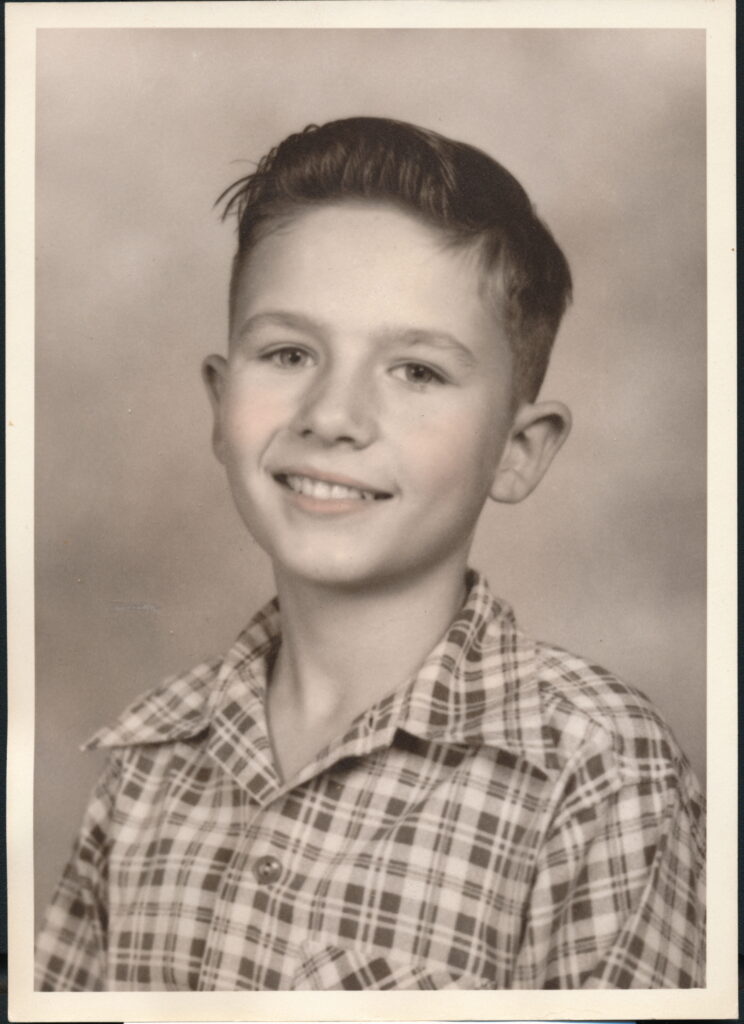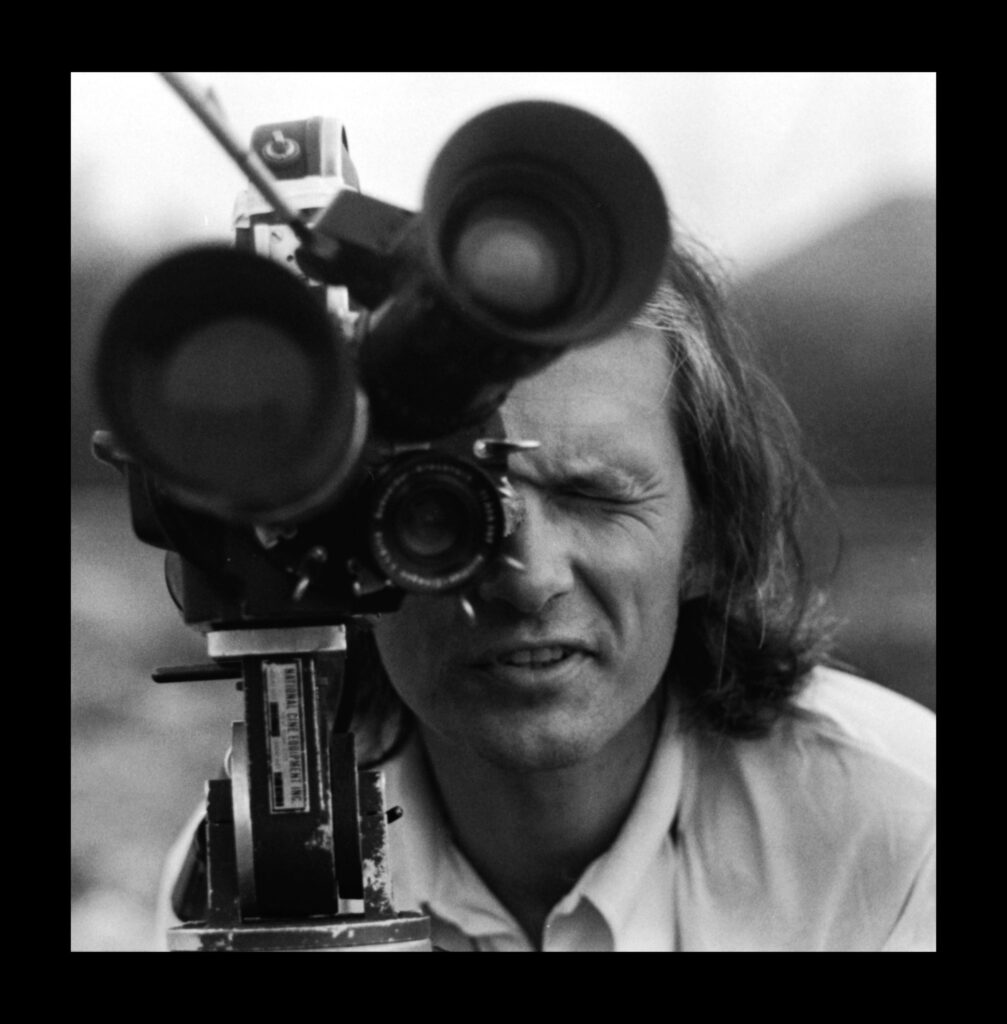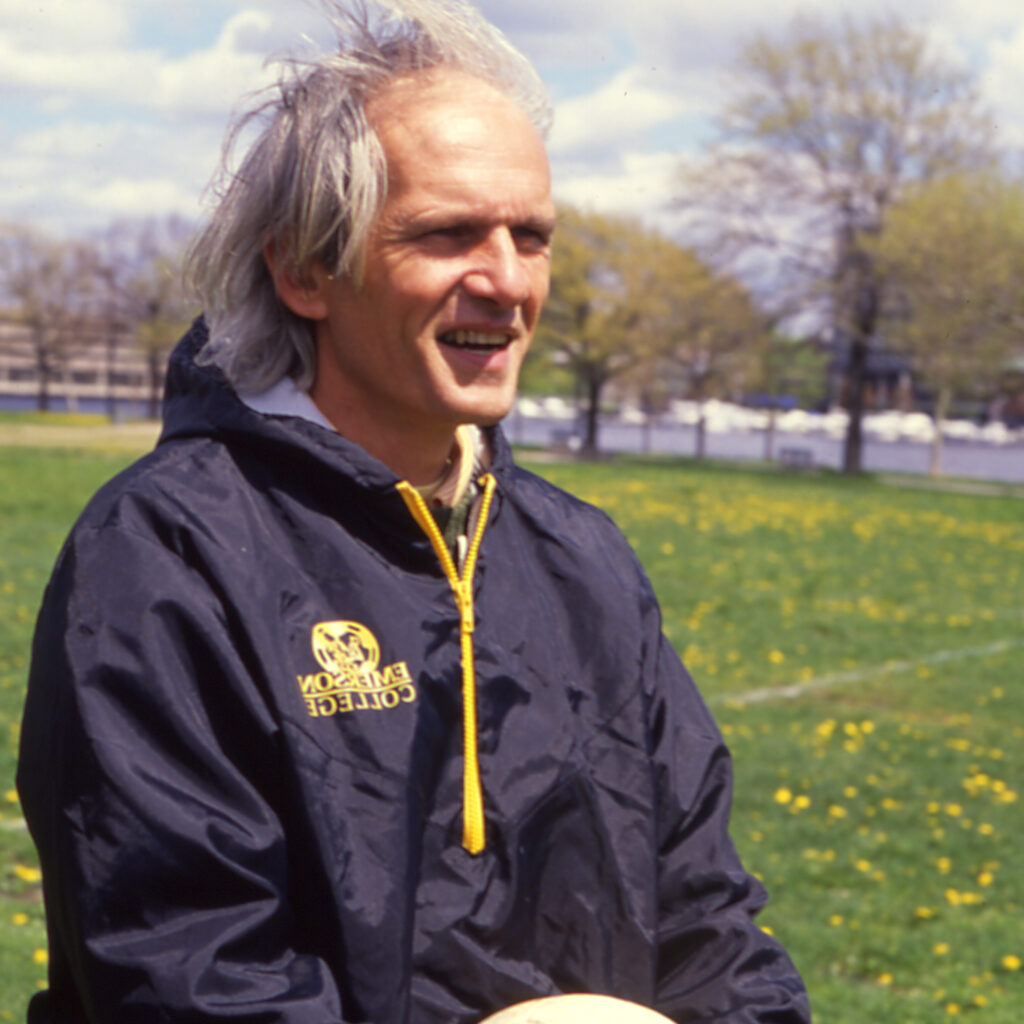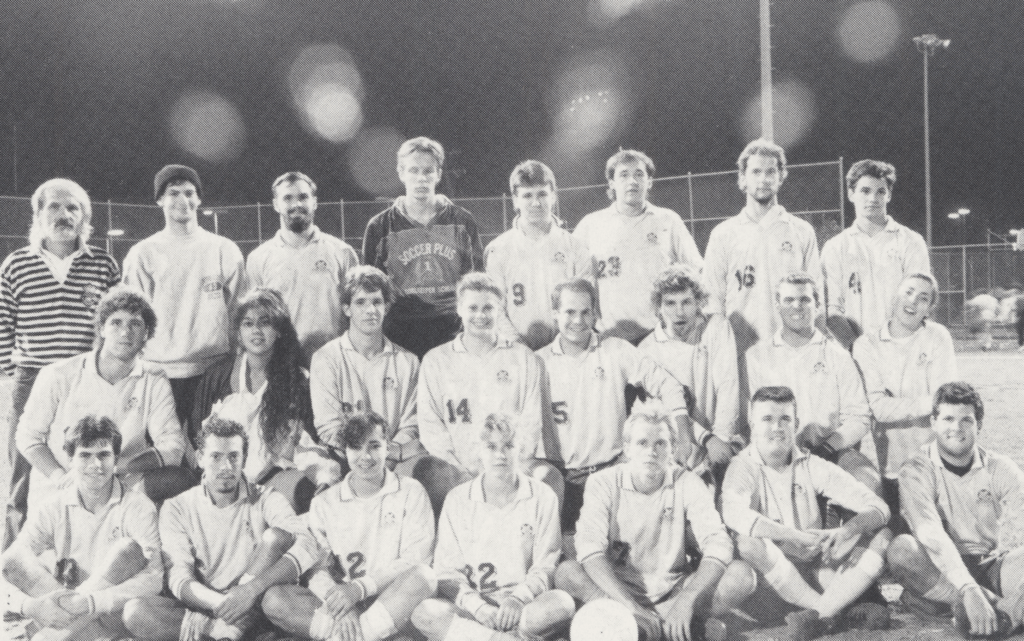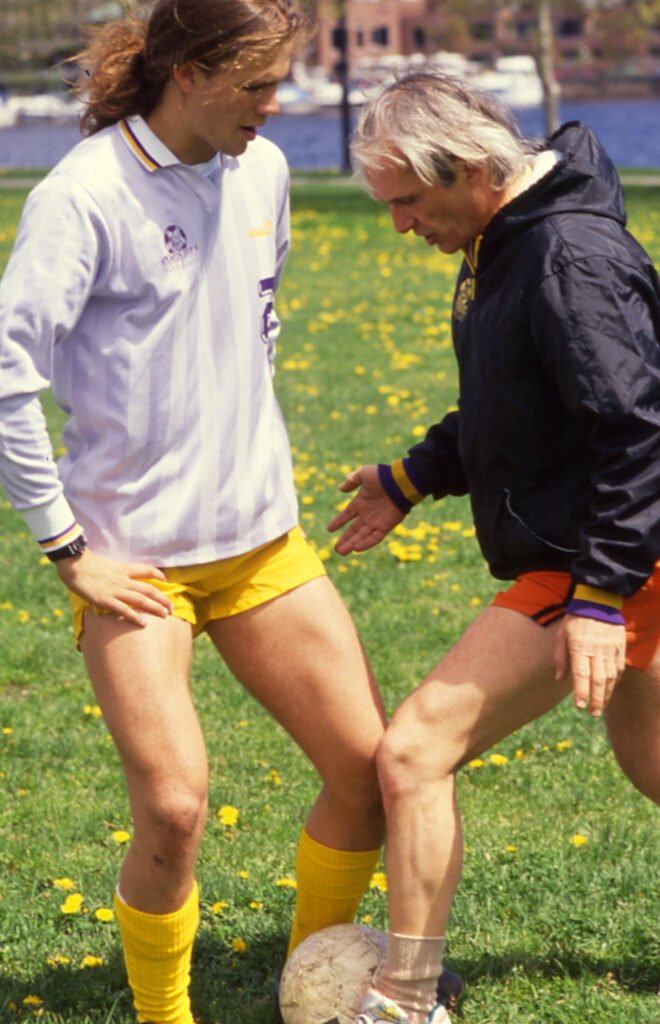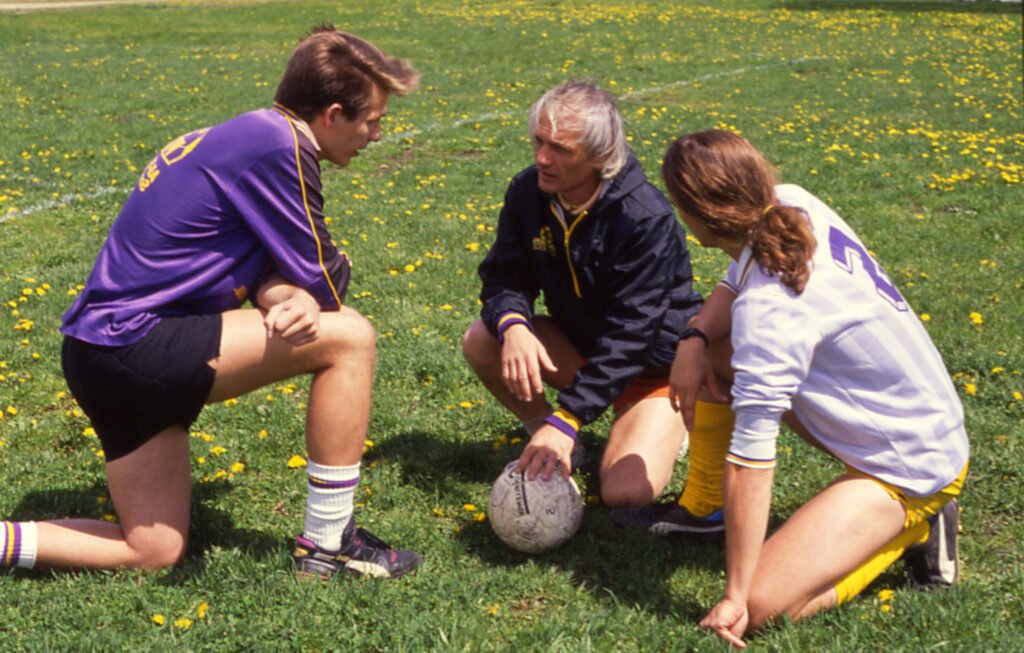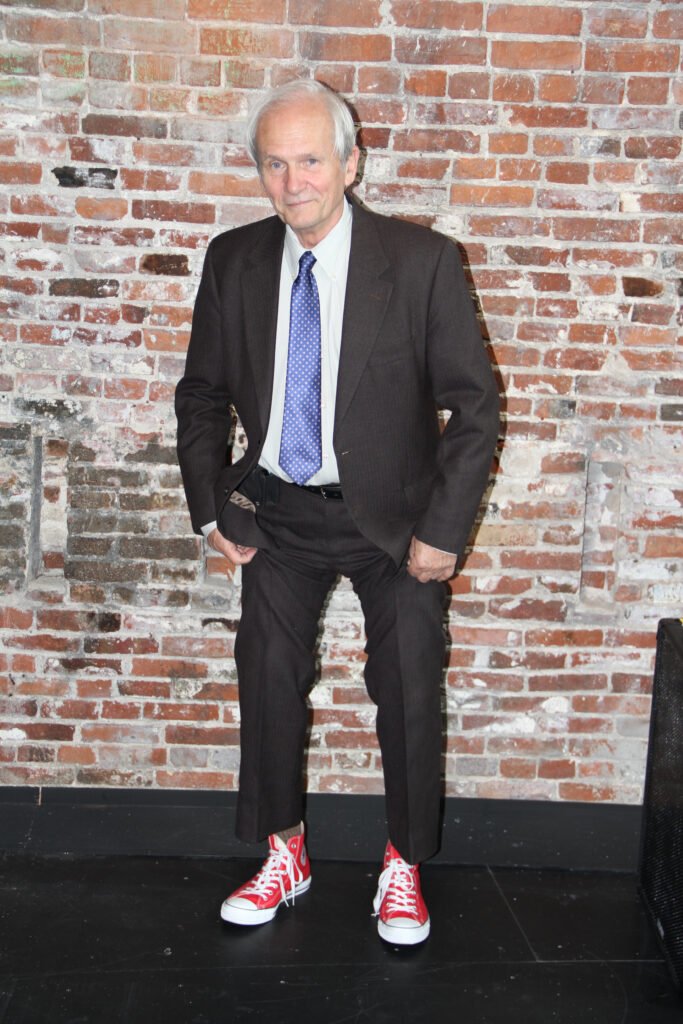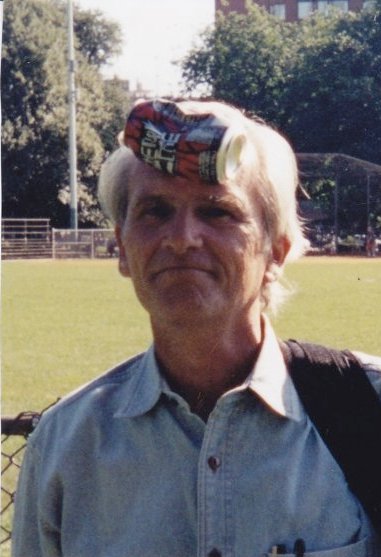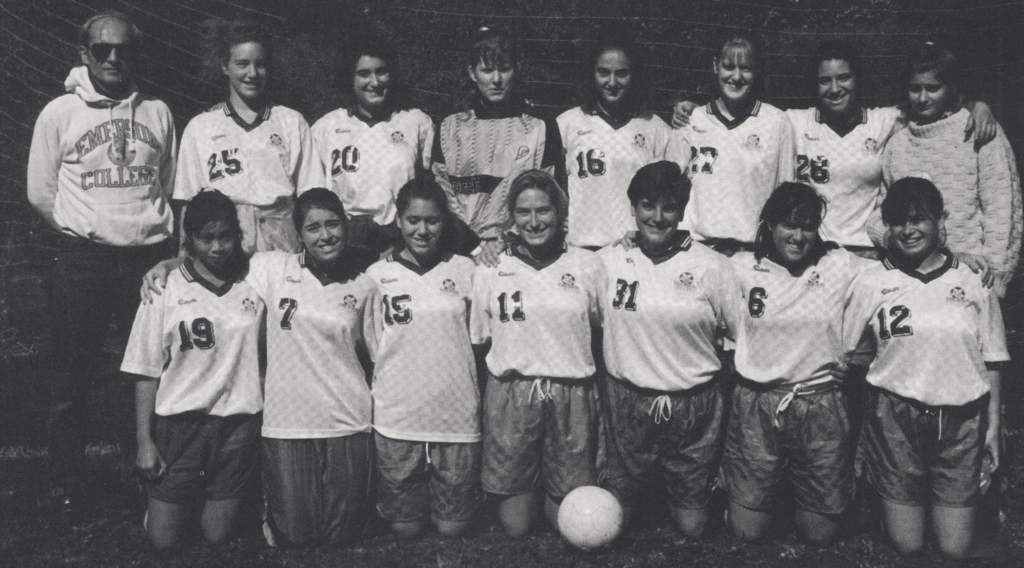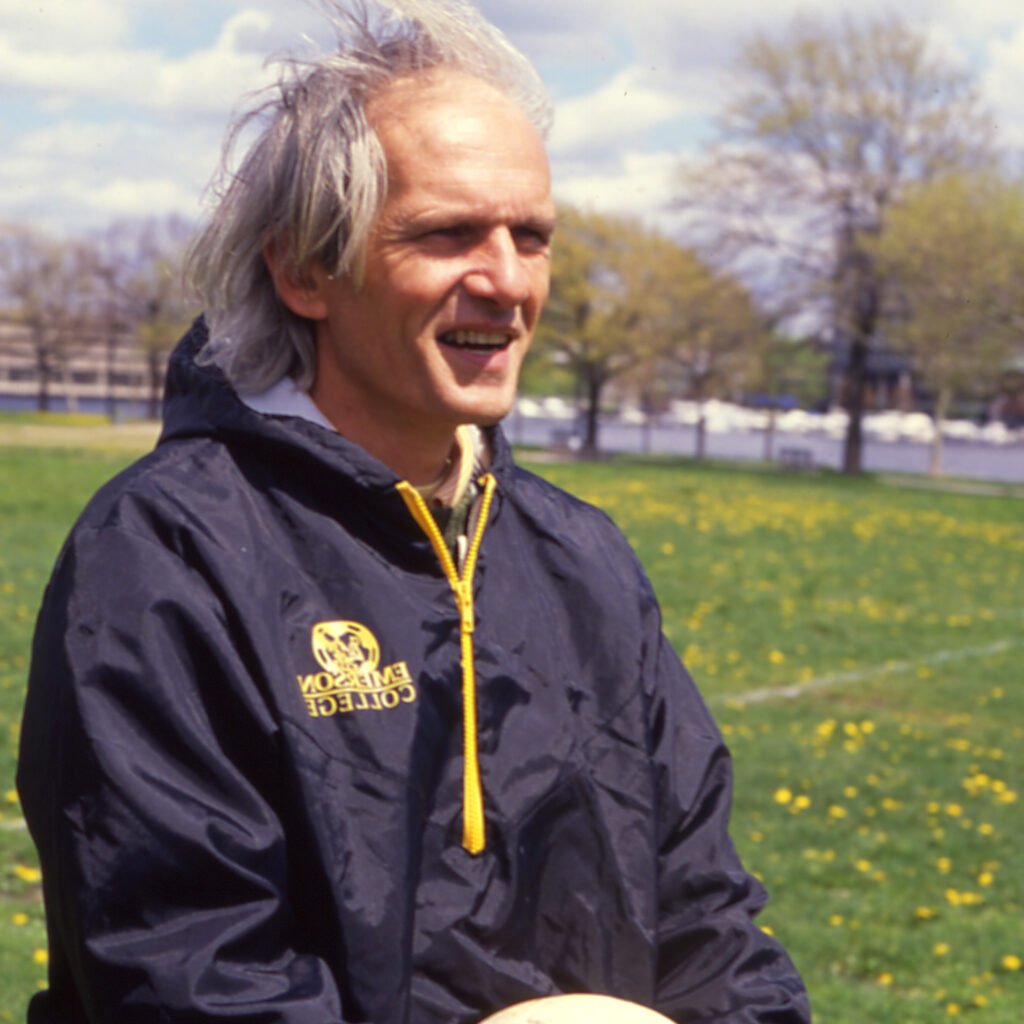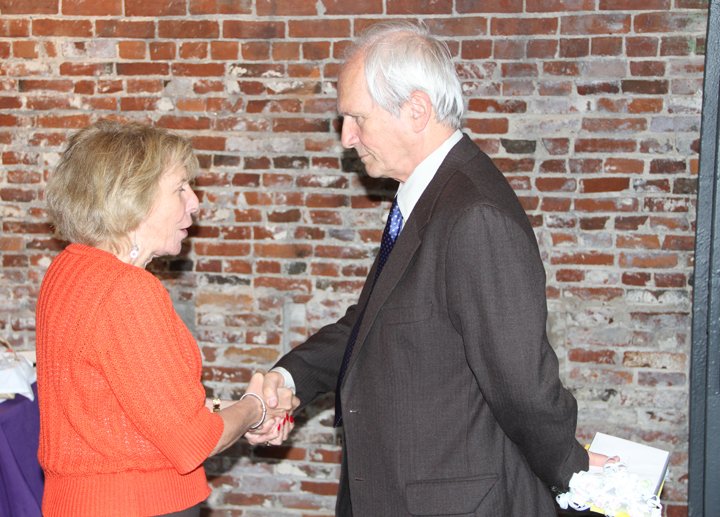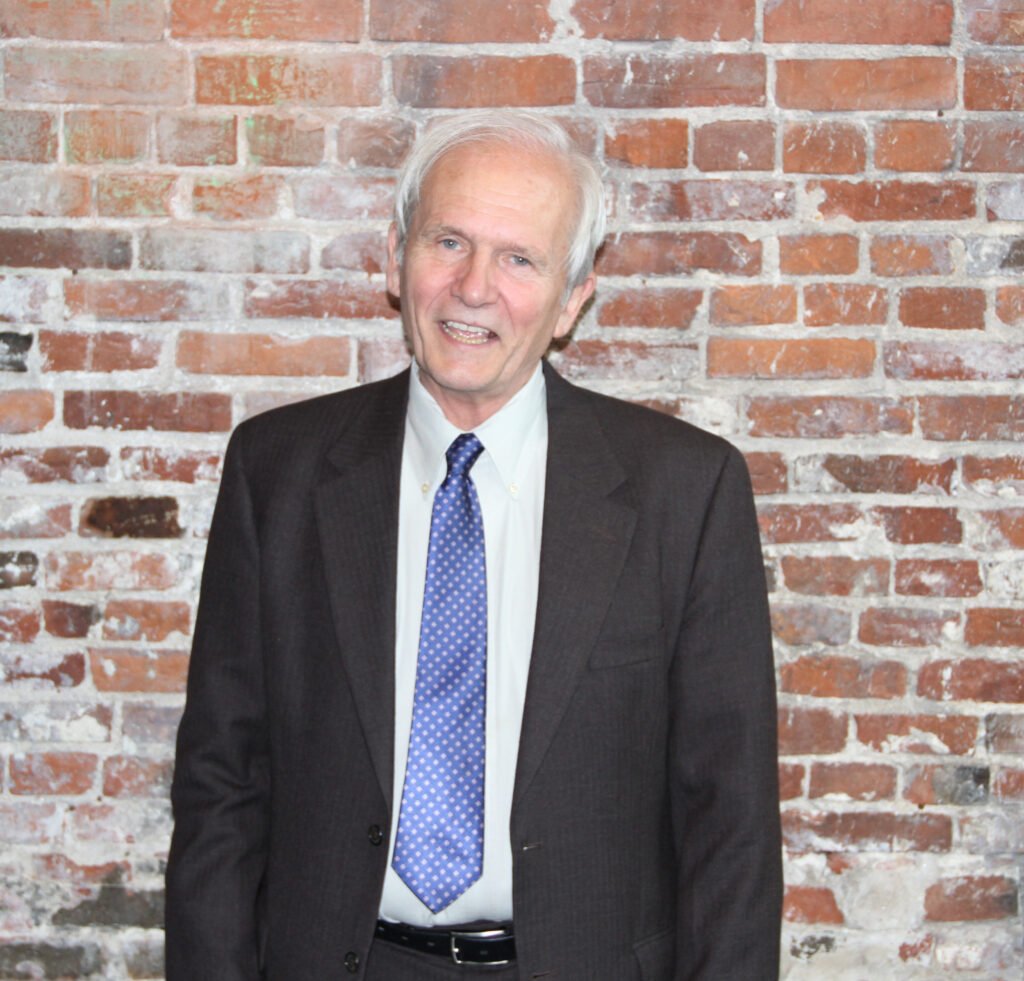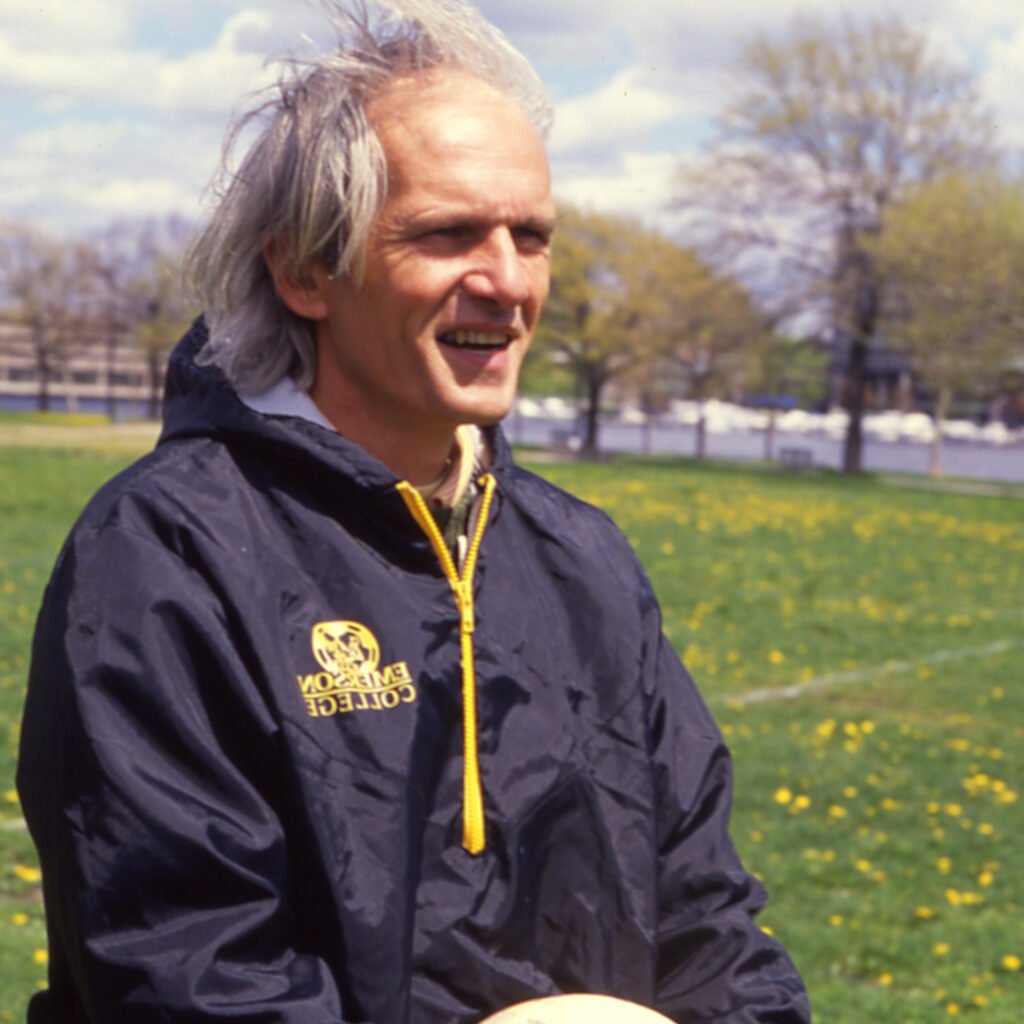Emerson Remembers the Legendary Pete Chvany
Pete Chvany was many things to many people throughout his life. Educator, coach, mentor, advisor, friend, and father. In each role he impacted the Emerson College community, and since his death on Tuesday, September 7, there has been an outpouring of love for him.
His accomplishments are many and incredibly varied.
Chvany started his career as a filmmaker in the 1970s, after attending Harvard as an undergraduate, and then receiving a Masters in Film Production from Boston University.
His Emerson career began as a part-time professor in the late 1980s. During this time he resurrected the Emerson soccer program, converting it from a co-ed team into a men’s team, and then creating and coaching the women’s team.
He transitioned from a formal teaching role to become a full-time staff member. He was an advisor to Emerson Independent Video and Frames Per Second; faculty advisory for the EVVYs for 15 years, from 1992 to 2007; and a post-production manager for Digital Production Labs starting in 1998 until his retirement in 2010.
His degrees, his advisory roles, the years he taught, are all things one would find on his resume. But what cannot be captured in a resume is the influence he had on hundreds of Emersonians for decades.
“As a human being, and as a film professor, generally speaking, he allowed kids to grade themselves for filmmaking,” said Alec Chvany ’95, whose brother Stephen graduated from Emerson in 1993 (Pete’s third son, Peter, didn’t attend Emerson). “He wasn’t attached to a letter grade, and as a coach he was primarily interested in learning who they were and what they wanted and to find pathways to make themselves successful for their desires.”
Interim President Bill Gilligan worked with Chvany for decades, and said that Chvany was the “heart” of transitioning the College from the analog world to the digital world in the 1990s. Chvany became the guru for all digital editing labs.
“He ran it like the military person he had once been. Going to work for Pete was like being in boot camp. He was hard on people and they loved him,” said Gilligan. “He said he was going to expect hard work and excellence all the time. They ate it up and they became his disciples. He was a mentor to hundreds of students.”
The Campus Tour Stop
Like visiting the library, the radio station, or residence halls, a stop to visit Pete Chvany became a staple of campus tours with prospective students and parents, said Gilligan. He stressed he would be hard on students, which was music to parents’ ears.
“One thing about me is that I like to say the secret of my success is that I get to work with smarter people. He was one of those smarter people. He played that down in a self-deprecating way,” said Gilligan. “He’d say, ‘What do I know? I’m just an English teacher’. But he was an English major from Harvard, and had a Master’s from BU. He wanted you to think that he was tougher than he was smart.”
Gilligan added that of all the colleagues he’s worked with, no one had a more loyal post-graduation following. He stayed connected to many alums.
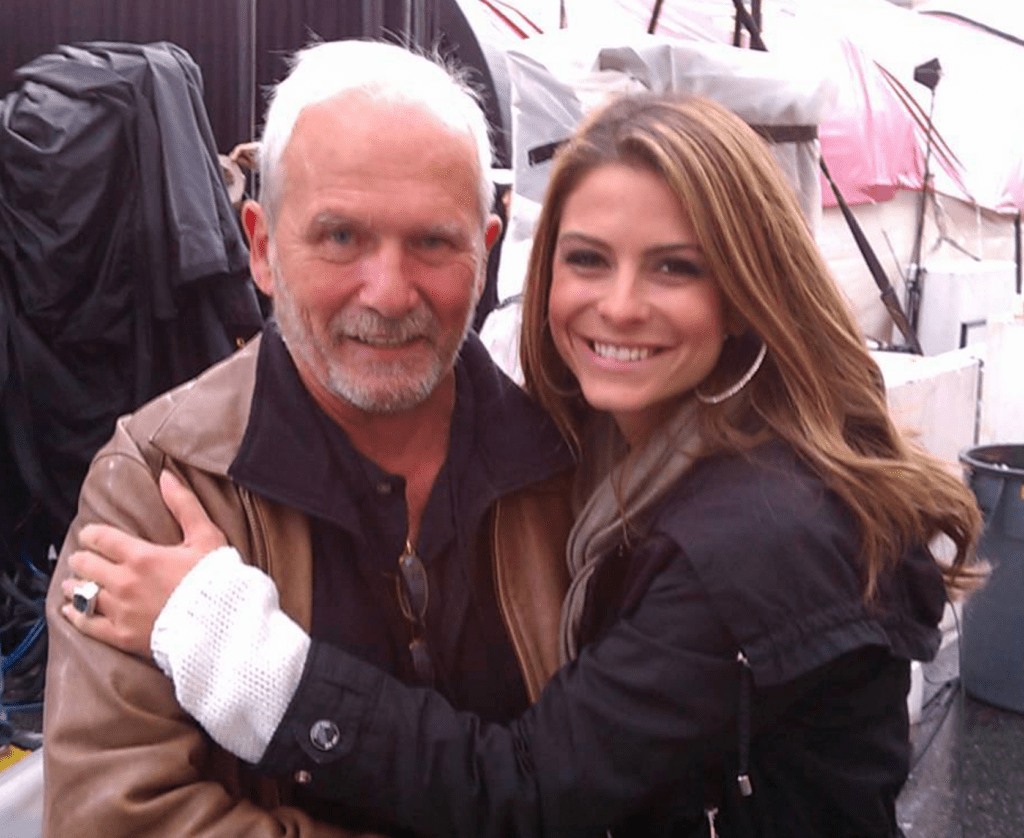
“He was our advisor, and was just really awesome and helpful in guiding us,” said Maria Menounos ’00, one of the rare first-year students to anchor EIV News, of which Chvany had a big role in selecting on-air talent. “I was so grateful for him and for him seeing something in me. That was the beginning for me.”
Menounos stayed in touch with Chvany, even showing up together several years ago during red carpet rehearsals at the Oscars.
“When I needed a rock star in the office, I would ask Pete if he would send someone. He would always jump in if I needed someone who could shoot, edit, or needed someone for this or that,” said Menounos. “He always had someone on his roster, or someone in school who was graduating.”
The Recruiter
Oftentimes Chvany recruited for that roster.
Chuck Simmons ’90 met Chvany in 1989 in the Emerson gym, which was a couple of rooms with weights near the Charlesgate dorm. Simmons hadn’t played soccer in more than three years, but Chvany convinced him to practice with the team.
“I ended up joining the team, met lifelong friends, and rediscovered my love for soccer. I eventually worked for ESPN, mostly on international soccer, for 25 years, including five men’s World Cups,” said Simmons. “Pete had a great ability to recognize what a particular student needed, whether it was encouragement, tough love, or an industry contact. It is no exaggeration to say Pete changed my life.”
Aaron Ryder ’94 was another recruit. While attending Worcester State College, Ryder had Chvany as a teacher. A member of his school’s soccer team, Ryder recalls that one Saturday afternoon Worcester State College was playing Emerson, and he was surprised to see Chvany on the other side of the field coaching Emerson’s team. Shortly after that game, Ryder befriended Chvany, who took him under his wing.
“I had always hoped to get into Emerson. Pete said, ‘Let’s try to make that happen.’ He pushed me to do everything I needed to do, including play soccer to get into Emerson,” said Ryder, whose credits include executive producing hit movies such as Donnie Darko, Memento, and an Academy Awards Best Picture nominee Arrival. “More than any person including myself, Pete is why I ended up at Emerson. Had I not met Pete Chvany, I wouldn’t have gone to Emerson or had the career I have today.”
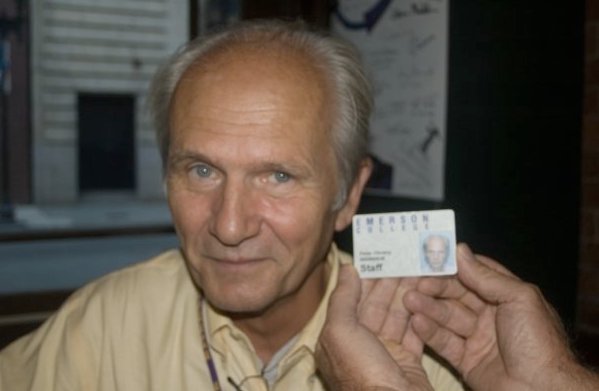
Ryder experienced what many did from Chvany: a full-throated encouragement of students.
Paul Starke ‘96 remembers a semester spent watching Lawrence of Arabia, frame-by-frame, sometimes just three minutes of footage a day. Starke said that exercise, while tedious, taught him to appreciate movies as works of art.
For many students, Chvany imparted wisdom out of the classroom, usually on the steps of 130 Beacon Street, while smoking a cigarette.
“He had this uncanny ability to tell each individual student not what we wanted to hear, but what we needed to hear, and at such a pivotal moment in our lives,” said Starke, who went on to win several Emmys. “We kept in touch after graduation, and he would always reach out with something kind to say, or a word of advice, with each nominal achievement. He’d invite me to speak to his class, or to present at the EVVYs, even though I was hardly a distinguished alumn[us]. He seemed prouder of me than I ever could be of myself.”
The Philosopher
Chvany’s philosophical nature also came out on the soccer field, as his son Alec noted. Apart from making substitutions or yelling from the sidelines, coaches make minimal impact during the game. Coaches instruct during practice, implement strategies, and hope players apply what was learned during games.
“My dad was a principles, not rules, kind of guy. He loved soccer because it gave the most autonomy,” said Alec. “As a coach he was interested in trying to create people who were good thinkers. My dad was trying to enable people to be themselves and that’s a lot of what he did in teaching as well.”
Senior Associate Director of Athletics for External Affairs Stan Nance said many of Chvany’s soccer concepts and theory were directly related to his many years of being an instructor in the classroom.
“He took great pride in developing the total …student-athlete, much like a teacher on the playing field, giving instructions on the basic skills of the game and never over-coaching so that the individual blossoms and reaches their full potential over time,” said Nance. “Pete was truly ahead of his time, and many former players refer to him as the ‘father of Emerson men’s soccer.’”
The Advocate
Chvany was also the father of the women’s soccer team, and pushed his female students to break into traditionally male-dominated jobs, such as working in sports television.
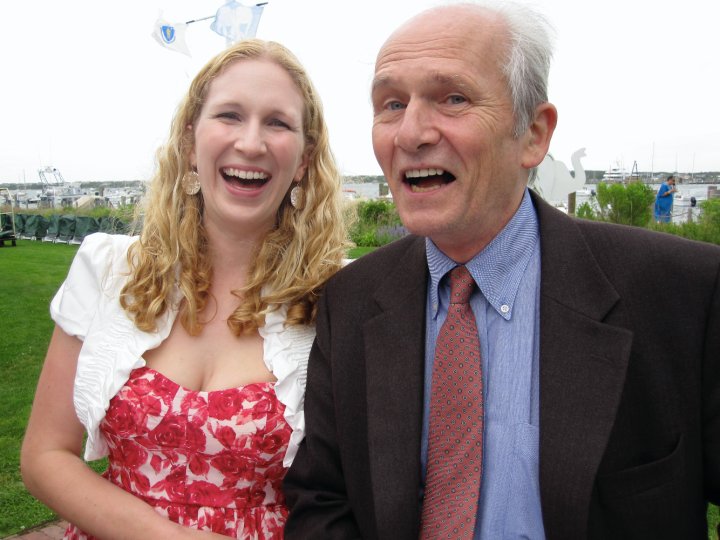
“Pete wasn’t the first person – or even the first man – to support me or believe in my ability, but Pete was the one who truly helped me believe in myself,” wrote Kate Sedrowski ’03 on Cameras & Carabiners. “He made it clear that I could be a cameraperson, and also made it clear that it would be different and harder to do so as a woman.”
Sedrowski said Chvany wanted her to be ready for what she’d face in a male-dominated industry, and he prepared her for it.
“He nudged me into researching powerful and successful women working in entertainment, then encouraged me to reach out to these women and interview them,” said Sedrowski. “Soon this small project turned into a documentary, involving many other students, mostly women, in all aspects of production.”
Sedrowski went on to become a camera operator for the Chicago Bulls for six seasons, and has moved on from TV production since then, but Chvany’s teachings continue to resonate.
“…I thought I was moving away from what Pete taught me, but it turns out I was moving closer. I’ve stepped into the role of guiding others, especially women…” wrote Sedrowski. “My mission is to pass on what Pete taught me, especially to other women – if you have the passion, the confidence, and the skills, you can do anything you dream of. Women belong wherever we want to be.”
For Jonathan “Satch” Satriale ’94, MA ’09, ’14, technology director for the School of Communication, Chvany meant more than words can express.
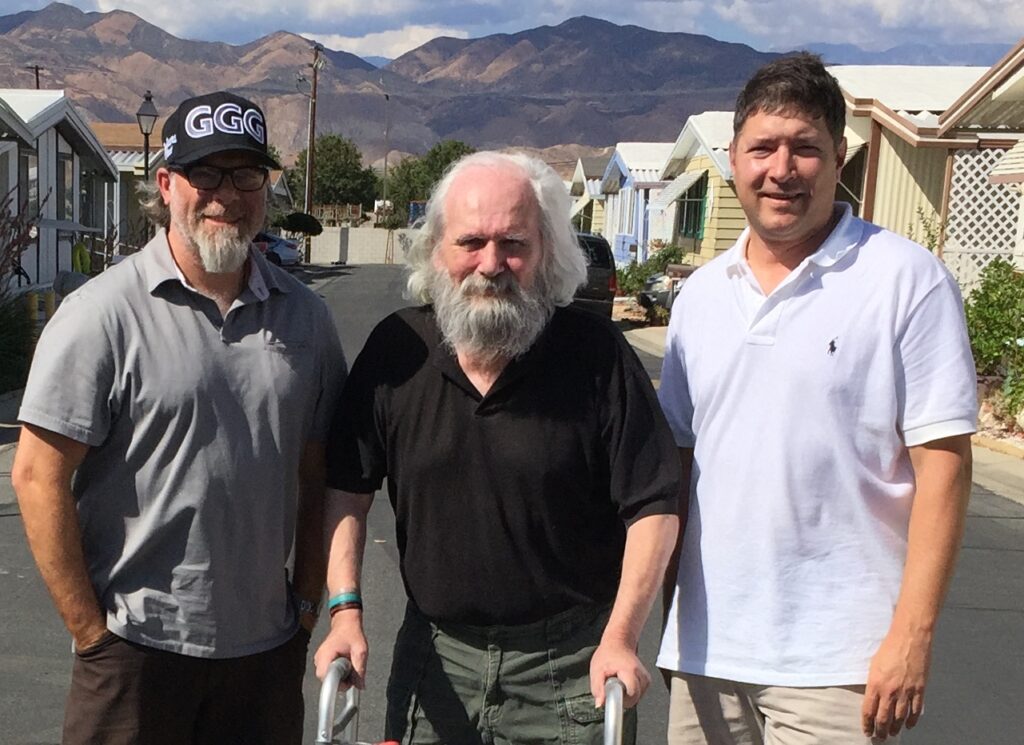
“Pete was a lot of things to me: mentor, soccer coach, EIV/EVVYs advisor, colleague, father of my great friends, and the list goes on,” said Satriale who along with Chvany’s sons, is an admin for the private Friends of Pete Chvany Facebook page. “He was a legend at Emerson and inspired and guided so many students. He helped launch countless careers, and taught me to pay it forward to the next generation. Above all, he was my friend and always gave it to me straight.”
And for everything that Chvany did for Emerson staff, faculty, students, alumni, parents, athletes, and more, Emerson gave something to him.
“One of the reasons my dad has a following and adore him is because he found Emerson to be an electrifying experience for him,” said Alec. “He invested in caring in people. But that investment is because he was intrinsically excited with so many people who were so cool.”
Alec said Emerson was like a playground for his father, and an ideal place for his father to also blossom.
“Any discussion of his impact, I think Emerson had an equal or more of an impact on him,” said Alec. “The institution itself, the people he worked for, and most importantly, the students themselves. He would put students on top of that list. Emerson gave him as much, or far more than what he gave it.”
Categories
